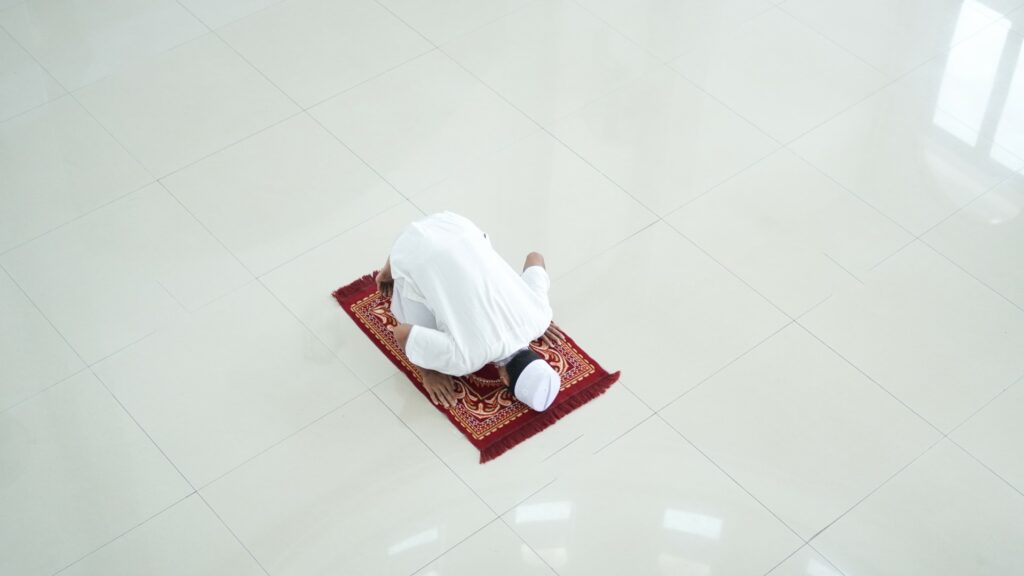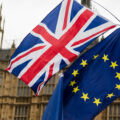Is Islamophobia widespread and socially acceptable in Britain?
Is Islamophobia widespread and socially acceptable in Britain?
Our analyst Muhammad Faisal Khalil looks at a new survey, which shows that Islamophobia is both widespread and socially acceptable in Britain.
This weekly comment was written by Muhammad Faisal Khalil and reflects his personal analyses and opinions, rather than those of EARS.
Despite being widespread, Islamophobia is not publicly recognised. Even when the United Nations declared Islamophobia to be a global epidemic,[1] it persists and grows[2] largely unacknowledged.[3] A 2022 survey by the University of Birmingham sheds new light on this problem. Looking specifically at Britain, it shows that the British public both holds and justifies negative views of Muslims more than it does in the case of any other religious group.
‘The dinner table prejudice’
The survey found that Muslims are the ‘least-liked’ religious group in the country. 25.9% of Britons feel negatively toward Muslims, with nearly 10% feeling ‘very’ negatively towards them.[4] This level of prejudice is at least 3 times higher than in the case of any other religious group. Jewish people were found to be the second ‘least-liked’ religious group, with 8.5% of the British public feeling negatively towards them.[5]
The survey described Islamophobia to be ‘the dinner table prejudice’,[6] not simply because it is so widespread in Britain, but also because it is socially acceptable. Unlike in the case of other religious groups, Britons openly and freely admit to their prejudice against Muslims. The survey’s lead, Dr Stephen Jones, explains this is because people think they know about Islam and Muslims.
Britons were specifically found to be far more confident in making judgements about Islam than other religions, even if their assumptions are incorrect. 21.1% wrongly believe Islam teaches its followers that the Quran must be read ‘totally literally’.[7] This misinformation is at least 3 times higher than in the case of any other religions: 7.5% for Judaism and the Hebrew Bible, 3.9% for Sikhism and the Guru Granth Sahib, and 4.8% for Christianity and the Bible.[8]
Miseducation driving policy
This misinformation also extends to conspiratorial views, with 26.5% of Britons believing that “there are areas in Britain that operate under Sharia law where non-Muslims are not able to enter”[9] while 36.3% of Britons believe that “Islam threatens the British way of life.”[10]
According to the survey, people are likely to hold negative and false views of Islam and Muslims if they are Conservative or Leave voters, or if they are wealthier and well educated.[11] The majority of Conservative voters (57.3%) and Leave voters (55.5%) believe Islam to be a threat to the British way of life. Similarly, 23.2% of people from high-income occupational groups compared to 18.4% from low-income groups were found to hold prejudiced views about Islam.[12]
Unsurprisingly, these negative views drive popular support for policies that seek to exclude Muslims from public life in Britain. 18.1% of the British public supports banning all Muslim migration to the UK, with 9.5% strong in their support. This public position on Muslim migration is 4% to 6% higher than for any other ethnic and religious groups.[13]
Remedying miseducation
These findings are alarming because, as British Muslim and poet Suhaiymah Manzoor-Khan recently observed, Islamophobia in Britain “is not the preserve of a fringe group.”[14] Despite this, as anti-racism and equalities campaigner Shaista Aziz said, “Islamophobia continues to be denied as a form of racism by many across all spheres of society, including in politics, the media and academia.”[15]
Dr Stephen Jones recommends that in order to stem this prevalence and acceptability of Islamophobia, Britain would need to acknowledge and remedy the systemic ‘miseducation’ about Islam and Muslims.[16] And this remedy needs to be system-wide, including government and other public figures, civil society organisations and equality bodies, educators, and broadcast media.[17]
This weekly comment was written by Muhammad Faisal Khalil and reflects his personal analyses and opinions, rather than those of EARS.
Interested in similar topics? Go to our Dashboard and get free updates.
[1] Anti-Muslim hatred at ‘epidemic’ proportions: UN expert
[2] From Xinjiang to Germany: how did Islamophobia become a global phenomenon? | Faisal Devji
[3] Look at ministers’ plans to secretly make Britons stateless and what do you see: Islamophobia | Suhaiymah Manzoor-Khan | The Guardian
[4] The Dinner Table Prejudice: Islamophobia in Contemporary Britain
[5] The Dinner Table Prejudice: Islamophobia in Contemporary Britain
[6] The Dinner Table Prejudice: Islamophobia in Contemporary Britain
[7] The Dinner Table Prejudice: Islamophobia in Contemporary Britain
[8] The Dinner Table Prejudice: Islamophobia in Contemporary Britain
[9] University of Birmingham survey reveals Islamophobia is the posh person’s prejudice
[10] University of Birmingham survey reveals Islamophobia is the posh person’s prejudice
[11] University of Birmingham survey reveals Islamophobia is the posh person’s prejudice
[12] The Dinner Table Prejudice: Islamophobia in Contemporary Britain
[13] The Dinner Table Prejudice: Islamophobia in Contemporary Britain
[14] Look at ministers’ plans to secretly make Britons stateless and what do you see: Islamophobia | Suhaiymah Manzoor-Khan | The Guardian
[15] Muslims second ‘least-liked’ group in UK: Survey | Arab News
[16] University of Birmingham survey reveals Islamophobia is the posh person’s prejudice
[17] University of Birmingham survey reveals Islamophobia is the posh person’s prejudice






